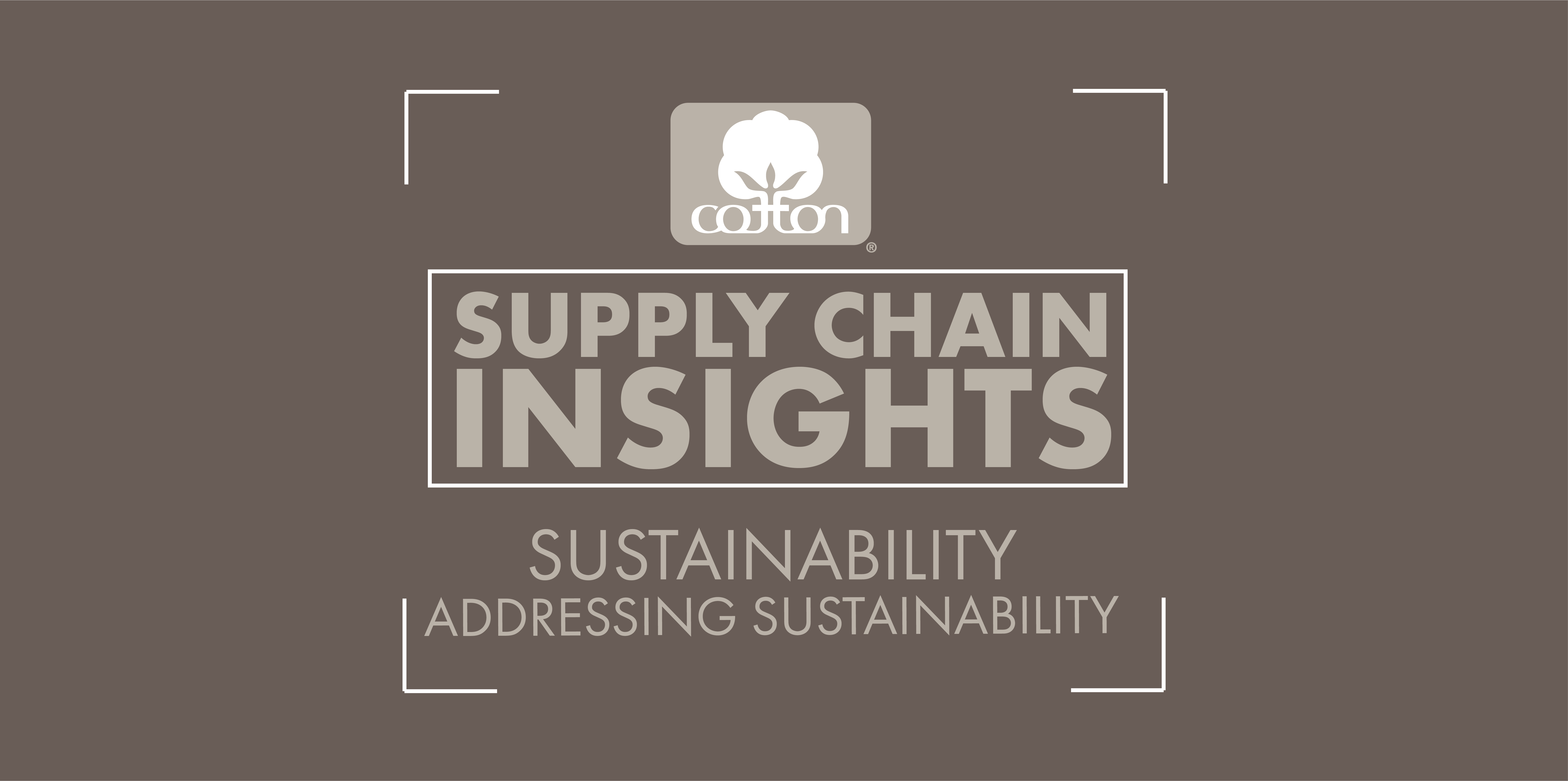Addressing Sustainability
October 25, 2021


Learn more about
Sustainable Cotton Innovations at
SUSTAINABILITY
ADDRESSING SUSTAINABILITY
COTTON INCORPORATED’S
|
SUPPLY CHAIN INSIGHTS
lobal consumers are thinking about the environment, as 86% say
sustainability concerns are very real and require a change in our behaviors.
This translates into action as 8 in 10 consumers report engaging in at least
one sustainable practice, such as recycling or avoiding plastics, “all the time.”
Brands can stand out by connecting with consumers’ feeling of responsibility by
protecting the environment with natural product offerings.
G
KEY INSIGHTS
Consumers regularly engage in sustainable practices that are convenient and
well-publicized, including their purchase behavior. Brands who can clearly signal their
products’ sustainability can connect with consumer desire to act on their concern for the
environment.
Consumers recognize fabric as a component of clothing sustainability, perceiving natural
fibers such as cotton and wool as safer for the environment than manmade fibers.
Marketers may promote cotton products in line with consumer motivations to protect
future generations, act responsibly, and lead a balanced lifestyle.
IMPACT OF SUSTAINABILITY
Percent saying environmental concerns play a strong role in daily life choices.
U.S. 37%
MEXICO 61%
GERMANY 35%
U.K. 36%
CHINA 48%
INDIA 62%
ITALY 49%
COMMON SUSTAINABLE ACTIONS
Percent who do this regularly.
MOTIVATION FOR SUSTAINABLE ACTIONS
87
%
Recycle Cans,
Bottles, Paper
84
%
Purchase
Energy Efficient
Appliances
83
%
Limit
Water Usage
85
%
Reduce
Waste
79
%
Avoid Using
Plastics
50
%
To protect the
world for future
generations
44
%
I feel
responsible
for the planet
38
%
To live a more
balanced/healthier
lifestyle
ith noticeable signaling and frequent opportunities to practice
sustainability, consumers are most likely to consider the environment
when purchasing food and household appliances. Clothing and home
textiles, however, are not far behind, with two-thirds of consumers saying that
sustainability has a moderate or great deal of influence on their purchases of these
products. Brands can signal the sustainability of their clothing using terms
consumers consider related, such as "environmental-friendliness" and "natural,"
and by using fibers perceived as safe for the environment, such as cotton.*
W
INFLUENCE OF SUSTAINABILITY ON PURCHASES
Percent who say sustainability has a moderate or great deal of influence on purchases.
FOOD
76%
CLOTHING
66%
HOME
TEXTILES
63%
HOUSEHOLD
APPLIANCES
75%
AUTOMOBILES
64%
BABY CARE
PRODUCTS
57%
Terms to Describe Sustainable Clothing
73
%
Sustainable Eco-Friendly Environmentally
Friendly
Natural Biodegradable
say fabric is very
important in
determining the
sustainability of
clothing.
75
%
73
%
72
%
71
%
70
%
FIBER SUSTAINABILITY
Percent of consumers who say fiber is safe for the environment.
88
%
Cotton
83
%
Wool
44
%
Rayon/Viscose
42
%
Lycra/Spandex
38
%
Polyester
38
%
Nylon
Source: CCI & Cotton Incorporated’s 2017 & 2021 Global Sustainability Survey, a survey of 6,000
consumers in the U.S., U.K., Germany, Italy, Mexico, India, and China. *Brand must be sure to use
such terms in compliance with the FTC Green Guides. ©2021 Cotton Incorporated.